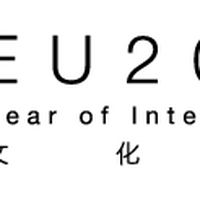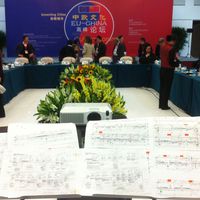EU and China launch people-to-people dialogue

The European Union and China are taking their co-operation to a new level with the launch of a "people-to-people" dialogue covering education, culture, youth, research and multilingualism.
Androulla Vassiliou, European Commissioner for Education, Culture, Multilingualism and Youth, and Liu Yandong, Chinese State Councillor, signed 18 April 2012 a joint declaration in which the EU and China commit to strengthening contacts and exchanges between their peoples in order to deepen understanding and trust.
The new EU-China High-Level People-to-People Dialogue represents a 'third pillar' in relations between the two partners, building on two previous cooperation agreements - the High-Level Economic and Trade Dialogue ('first pillar') and the High-Level Strategic Dialogue ('second pillar').
A number of follow-up actions have already been identified. China and the EU will expand the opportunities for mobility in education, and increase the number of exchanges between students and scholars, particularly in higher education. The two sides will work together to improve the mutual recognition of academic qualifications. To promote language-learning, China and the EU will jointly organise a major conference on multilingualism at the end of the year.
The two parties will support numerous activities under the 2012 EU-China Year of Intercultural Dialogue, a new milestone in EU-China cooperation. Its closing ceremony, which will take place in China towards the end of the year, will include a declaration on future cultural co-operation. Both sides will work together to enhance the circulation of their audiovisual works and artists.
For their youth, the two parties will increase support for exchanges and networking between their respective youth organisations, and strengthen web-based cooperation between the Chinese and EU portals specialised in youth issues.
Source: European Commission
Similar content
posted on
17 Feb 2012
posted on
14 Dec 2012
posted on
25 Nov 2020
posted on
09 Sep 2014
posted on
11 Dec 2010
posted on
17 Nov 2011






